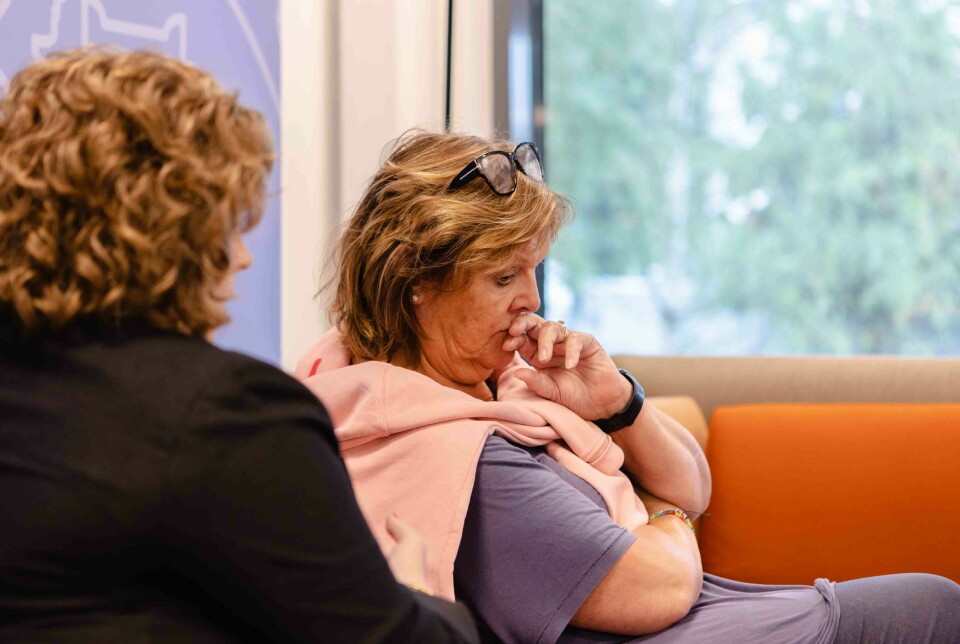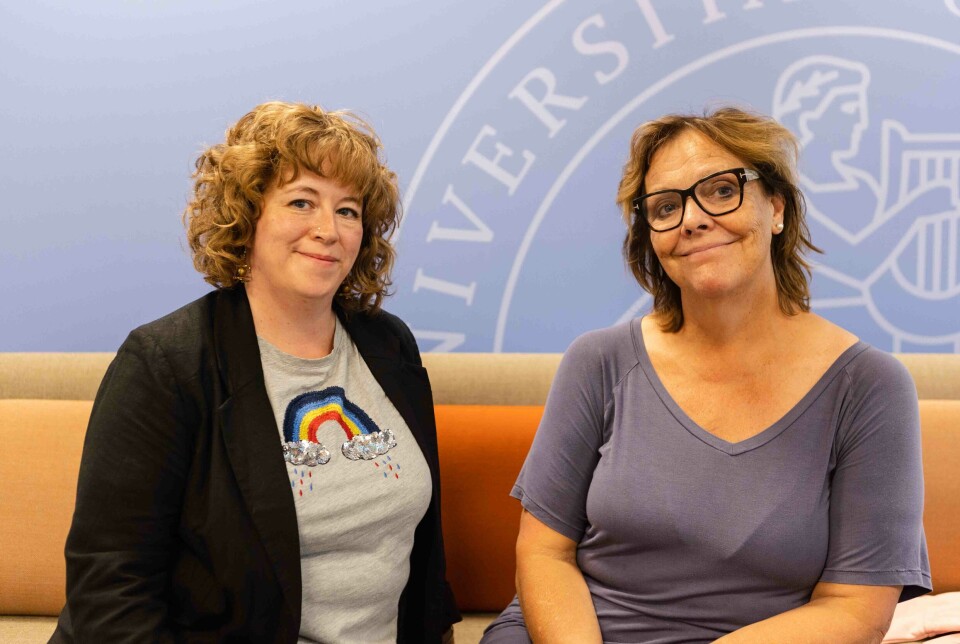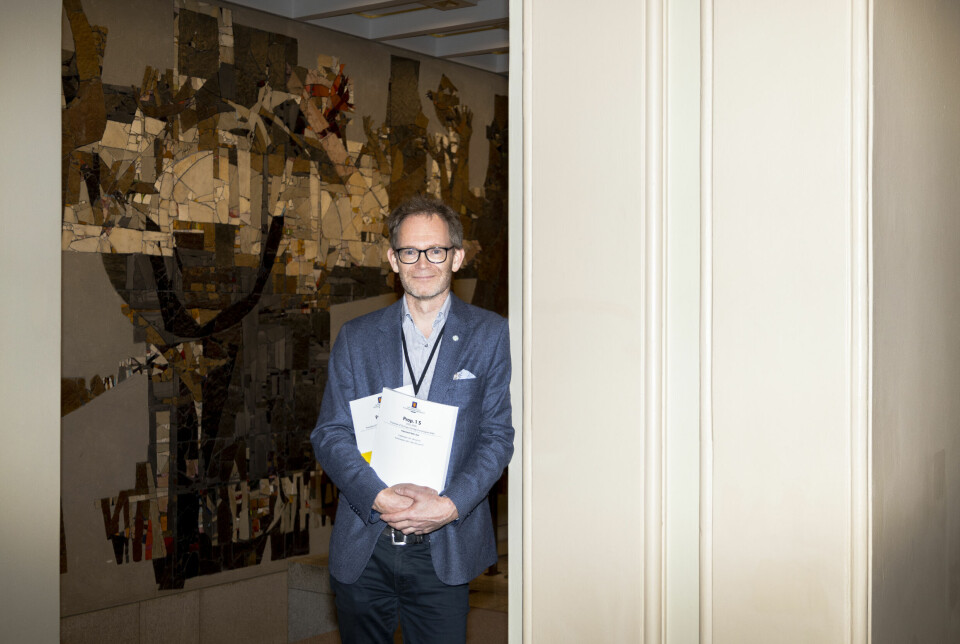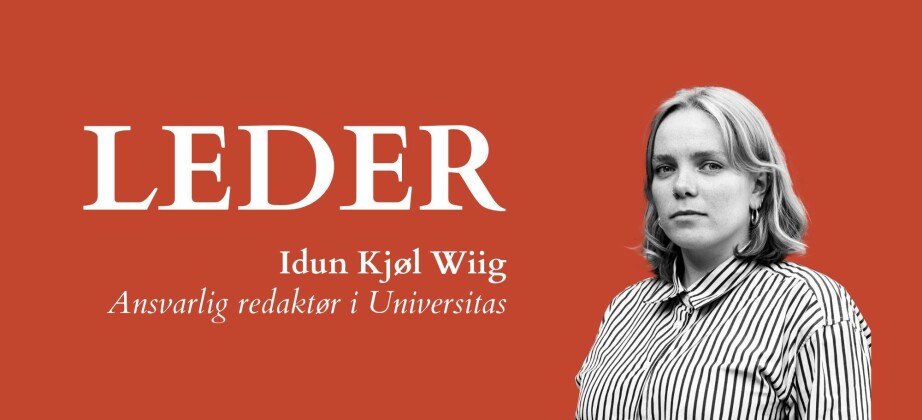
The number of international students is down by more than half
This is a translation of the Norwegian article written by Anders Ihle Tovan, with photographs by Aurora Ytreberg Meløe (published in Universitas on August 18, 2023).
UiO has been hit hard by the new tuition fee policy for international students. The Norwegian Ministry of Education cannot promise that there will be any scholarship schemes for international students outside the EU/EEA and Switzerland.
Sidsel Roalkvam is the leader of SUM (the Center for Development and Environment) at the University of Oslo. Beside her is Gudrun Cecilie E. Helland, Head of the Studies Department at SUM. They have recently concluded the introduction day for the centre’s freshmen students.
Usually at this time there would be eight to nine self-financing students from outside the EU/EEA and Switzerland coming to start the Master’s program Development, Environment and Cultural Change. So far, only three have shown up.
— We sent out offers to many more self-financing international students than we usually do. We thought that more people would say no now, says Helland.
Concerned about how things will develop
The introduction of tuition fees for international students outside of the EU/EEA and Switzerland has caused major reactions within the education sector. Last year, the government calculated that there would be an approximate 70% drop in the number of students, based on figures from neighbouring countries – Denmark and Sweden. New figures from Khrono show that the number is actually approaching 80%.
Roalkvam believes that there are many different sides to the introduction of tuition fees. Despite the fact that it is new in Norway, she is worried about the further developments it will cause.
— It means a lot for Norwegian students to sit in an international classroom, and it should be possible for students from the Global South to come and study here. The introduction of fees contravenes a fundamental idea of solidarity, she believes.
— Previously, we had a quota program where students from southern countries could apply for scholarships. This stopped a few years ago. Since then there hasn’t been anything similar, Helland adds.
Better than expected
Both Helland and Roalkvam are nevertheless optimistic following the introduction day. They feared that no one would show up at all. The students at the centre are from a total of 18 different countries, and around half of them are from the Nordics.
—Until recently, Norway was one of the few countries that didn’t apply tuition fees to international students. What are your thoughts on that?
— I am fundamentally against tuition fees. The principle of free education is one of the most important things about higher education. We haven’t talked enough about what this means for the quality of education. We will do what we can to offer good education, but when it involves discussions about sustainability, climate and development, international perspectives are very important, says Helland.

— Higher education professionals and students must stand together about this. We are becoming more self-centred, but the challenges we face do not become less global, comments Roalkvam.
Hoping for good dialogue
Roalkvam is clear about the fact that the introduction of tuition fees leads to change in relationships. She thinks it is important to use the opportunities that the Norwegian education system provides, and hopes that it will be extended in the future.
— One must look at the challenges we face, and take a serious look at what our sector can bring to the enormous changes we are going to go through. Whether we want to or not.
Both of them hope that Sandra Borch, Norway’s Research and Higher Education Minister, will meet the sector in a good way, and ensure that support and scholarship schemes are prioritised.
— Exchange is all fine and well, but there is something about relationships and expertise that is built over time. It is clearly easier to form stronger bonds when everyone is new, Helland points out.
One must look at the challenges we face, and take a serious look at what our sector can bring to the enormous changes we are going to go through.
As expected
Khrono recently stated that 332 international students will start degrees at Norwegian universities and colleges this autumn. Last year, the number was 1,533, according to the information the newspaper has obtained from various Norwegian study centres.
It is in line with what the government expected, according to state secretary Oddmund Løkensgard Hoel from Sp (The Centre Party, translator’s note).
— We still do not know whether that percentage is correct. The start of studies is yet to be completed, and the deadline for semester payment has not expired. But it is roughly as expected, he tells Universitas.
— 70% and 80% are relatively different numbers, aren't they?
— There is a significant decrease. But at the same time, we have seen that there was a big decline in the first year in neighbouring countries too, then it gradually came back up, he adds.
Scholarship schemes in the works
Hoel says that the Directorate for Higher Education (Direktoratet for høyere utdanning og kompetanse) is working on scholarship schemes, but a decision about whether or not anything will come of it has yet to be made.
— It is primarily a budget issue, explains the state secretary.
When asked if there would be any chance for a reversal of the policy if the number of international students gets too low, Hoel replies that the Ministry of Education has not set any numbers to this. But it would be a big surprise if the decline were even greater than it already is.
— This is an arrangement that a broad majority in the Storting agreed upon, and I have little faith that it will be changed, he says.
Following the continent: State Secretary Oddmund Løkensgard Hoel (Sp) says that Norway has adapted like the rest of Europe. Photo: Synne Moen

The arrow is pointing upwards
Hoel says that today around NOK 40 billion is spent on universities and colleges. About one billion of that money is spent on international students outside the EU/EEA and Switzerland.
He states clearly that Norway has adapted to the norm in other European countries when it comes to tuition fees.
— Will this lead to consequences for international cooperation?
— International cooperation is large, comprehensive and desired. We have, among other things, made tuition exceptions for students from outside the EU/EEA and Switzerland who come here on exchange. In 2022, the numbers of incoming exchange students were at their highest ever. International student mobility is going in the right direction, he affirms.
































